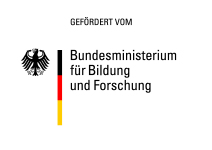KoAlFa
The R+D-Project (Research and Development Project) “Coproduction in the welfare mix of Work with the Elderly and Families (KoAlFa)” aims the development and of new methods of interface management in the field of multi-professional and volunteered maintenance/patient centred care of the Elderly with dementia and their caring relatives. The coproduction of formal and informal supporters and the multi-professional cooperation are substantial interests.
With focus on „Social Innovation for Quality of Life in Old Age“-SILQUA , KoAlFa is sponsored for three years (9/2011 – 12/2014) by the German Federal Ministry of Education and Research (BMBF). The BMBF is providing funding for Universities of Applied Sciences and initiates applied research aimed at improving the quality of life and protecting the independence and dignity of elderly people, particularly people suffering from old age ailments.
For a sustainable development and the organization of regional maintenance networks, from the beginning on a close cooperation between researchers, representatives of professional maintenance, representatives of self-help and active citizenship, as well as persons concerned and their relatives are included. The exchange and negotiation tasks within the research process provide the foundation for a successful cooperation beyond the triennial project period.
At the same time, KoAlFa focuses on the coproduction of arranged coherence of maintenance as special role of social work and redounds to the professionalization debate through narrow connected research and development.
Content
KoAlFa contributes sustainment and improvement of the quality of life of elderly people with dementia and their caring relatives.
KoAlFa is based on the assumption that improved cooperation and coordination between different contractors of maintenance (interface management) increases the chance to protract the deprivation of autonomy of the persons concerned and relieves their relatives under taking care of individual needs and circumstances. Against the background, KoAlFa aims at the establishment and arrangement of co-productive working relations of all relevant and varied stakeholders.
In the field of work with the Elderly and Family assistance, potentials for the supports of old aged persons with dementia and their relatives should be fathomed out and integrated in already existing professional cooperation of maintenance. The intents are to include informal helping systems (self-help and active citizenship) and to analyse how a balanced arrangement of responsibility, contribution and strain between different stakeholders can be achieved. The main target groups of the project are people sickened by old age dementia and their caring relatives, stakeholders with self-help connections and active citizens, as well as stakeholders from the professional elderly and family assistance plus medical and custodial maintenance stakeholders.
Substantial is, that stakeholder-groups won’t be just explored, but rather participate active on the whole research and development process (participative research process). Therefore, researchers co-work with partners in practice, partners from self-help and active citizenship and target families respectively households within Thuringia.
The intensified cooperation within the R+D-Process accomplishes networking, establishes interexchange and spaces for negotiation and enables a common definition of problems, as well as it emerges the development of approaches of solutions.
Moreover, the cooperation between scientist of different disciplines and stakeholders from the maintenance practice sensitizes for different cultures. It facilitates the comprehension of varied perspectives and different approaches to dementia, assistance and care.
The close cooperation of researchers from Switzerland (Prof. Dr. Otto, FHS St. Gallen) serves the comparison of a similar region, which is characterized by different structures and backgrounds of maintenance referring to their different structure of welfare. Besides the gaining of Best-Practice-Examples, questions of superregional interface management and the relevance of regional specialties are central points.
Concluding, the project is connected to the expectation of discussing the field of interface management and the role social work can play within.
Contact
Prof. Dr. Michael Opielka, project director, EAH Jena
Post:
Ernst-Abbe-Hochschule Jena, Fachbereich Sozialwesen
Carl-Zeiss-Promenade 2
D-07743 Jena




